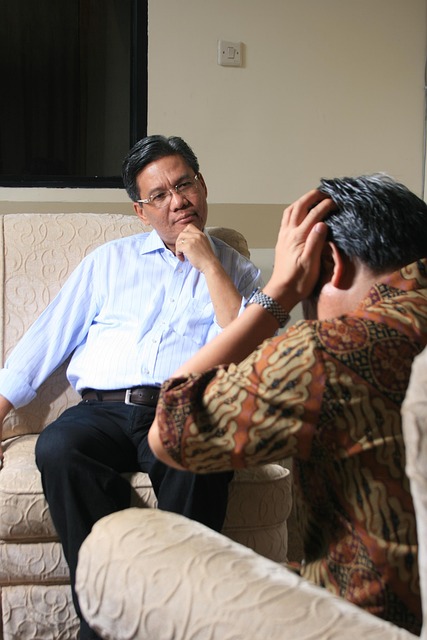Transforming Relationships: Gilbert Couples Counseling Experts Guide You

Gilbert Couples Counseling offers specialized psychological support for romantic partnerships facing…….
In an era where relationships are increasingly complex, the need for effective counseling has become more critical than ever. Gilbert Couples Counseling, a specialized therapeutic approach, has emerged as a powerful tool to help couples navigate the challenges of modern life. This article delves into the intricate world of Gilbert Couples Counseling, exploring its definition, global reach, economic implications, technological integrations, policy frameworks, and its overall impact on strengthening relationships. By examining these aspects, we aim to provide a holistic understanding of this counseling method and its role in shaping healthier and more resilient partnerships worldwide.
Definition: Gilbert Couples Counseling is an evidence-based therapeutic modality designed specifically to address the unique dynamics and challenges within romantic relationships. It emphasizes open communication, emotional intimacy, and conflict resolution skills to help couples improve their connections and overall well-being. This counseling approach draws from various psychological theories and practical techniques to create a tailored experience for each couple.
Core Components:
Communication Skills: Teaching effective communication strategies, including active listening, assertiveness, and non-violent conflict resolution, forms the foundation of Gilbert Couples Counseling. By improving their dialogue, couples can enhance understanding and reduce arguments.
Emotional Intimacy: The process encourages partners to explore and express their emotions, fostering a deeper connection. This involves sharing vulnerabilities, setting emotional boundaries, and developing empathy for one another.
Conflict Resolution: Couples are equipped with tools to manage and resolve conflicts constructively, ensuring that disagreements become opportunities for growth rather than sources of division.
Relationship Building: The counseling process focuses on strengthening the bond between partners by identifying and addressing underlying issues that may be detrimental to the relationship’s health.
Historical Context:
The concept of Gilbert Couples Counseling has evolved over several decades, drawing from the broader field of marital therapy and relationship counseling. While its roots can be traced back to the early 20th century with pioneers like Sigmund Freud and Carl Jung, it gained prominence in the late 20th century with the rise of couples’ therapy movements. The term “Gilbert” likely refers to the influential psychologist B.F. Gilbert, known for his work in humanistic psychology and relationship counseling. Over time, this approach has been refined and integrated with various therapeutic techniques to create a more comprehensive and accessible form of support for couples.
Gilbert Couples Counseling has transcended geographical boundaries, leaving its mark on diverse cultures and societies worldwide. Its global impact can be attributed to several key factors:
Cultural Adaptability: The counseling method’s core principles are adaptable to various cultural contexts, allowing practitioners to tailor their approach while maintaining the fundamental structure. This adaptability ensures its relevance across different societies.
Digital Accessibility: The rise of online therapy platforms has significantly contributed to the global reach of Gilbert Couples Counseling. Digital tools enable couples to access counseling from remote locations, breaking down geographical barriers. According to a 2022 report by the Journal of Clinical Psychology, the global online therapy market is projected to reach USD 7.5 billion by 2030, highlighting its growing popularity.
Increasing Awareness: Global health organizations and mental health advocacy groups have played a crucial role in raising awareness about the importance of relationship counseling. Campaigns such as the World Health Organization’s (WHO) “Building Better Relationships” initiative have contributed to a growing recognition of the value of Gilbert Couples Counseling.
Regional Trends:
North America and Europe: These regions have long been at the forefront of adopting evidence-based therapeutic approaches, including Gilbert Couples Counseling. Countries like the United States, Canada, and various European nations have well-established networks of trained counselors and therapists offering this service.
Asia Pacific: The Asia Pacific region, encompassing countries such as Australia, New Zealand, Japan, and South Korea, has witnessed a significant rise in the demand for couples counseling. Cultural shifts towards greater openness regarding mental health and relationships have contributed to its acceptance.
Middle East and Africa: While the availability may vary across these regions, there is a growing interest in Gilbert Couples Counseling, driven by increased access to technology and a growing awareness of mental health issues.
The economic implications of Gilbert Couples Counseling are multifaceted, impacting both individuals and society at large:
Market Dynamics: The global counseling market is substantial and growing. According to a report by Market Research Future (MRFR), the global therapy and counseling market was valued at USD 165.7 billion in 2020 and is projected to reach USD 349.8 billion by 2027, indicating a compound annual growth rate (CAGR) of 13.4%. Within this market, couples’ counseling represents a significant segment.
Investment Patterns: Private investments in mental health services, including couples counseling, have been on the rise, especially with the involvement of venture capital firms. This trend reflects the growing recognition of mental health as a critical aspect of overall well-being and productivity.
Cost-Effectiveness: Research suggests that Gilbert Couples Counseling can be cost-effective in the long term. A study published in The Journal of Marriage and Family found that couples who received counseling demonstrated improved relationship satisfaction and reduced divorce rates, leading to potential savings for society in terms of legal fees, child support, and other related expenses.
Technology has played a pivotal role in transforming Gilbert Couples Counseling, making it more accessible and adaptable:
Online Platforms: The advent of secure video conferencing tools has enabled real-time counseling sessions over the internet. This technology allows couples to access services from anywhere, increasing convenience and reducing barriers to care.
Mobile Applications: Dedicated mobile apps offer self-help resources, mood tracking, and personalized exercises to support couples between sessions. These tools can enhance engagement and provide additional support outside of traditional therapy settings.
Artificial Intelligence (AI): AI-powered chatbots and virtual assistants are emerging as potential aids for initial assessments and triaging, providing basic guidance and information to couples seeking counseling. However, ethical considerations and the need for human oversight remain crucial in this application.
The provision of Gilbert Couples Counseling is influenced by various policies and regulations that vary across jurisdictions:
Licensing and Certification: In many countries, counselors must obtain licenses or certifications from regulatory bodies to practice. These regulations ensure a certain level of proficiency and ethical conduct among practitioners.
Health Insurance Coverage: The extent to which couples counseling is covered by health insurance policies varies widely. Some countries have implemented policies to include relationship therapy as a benefit, making it more accessible to the population.
Privacy and Data Protection: With the increasing digitalization of counseling services, data privacy and security are paramount. Regulations like the General Data Protection Regulation (GDPR) in Europe and the Health Insurance Portability and Accountability Act (HIPAA) in the US set standards for protecting sensitive information.
Despite its benefits, Gilbert Couples Counseling faces several challenges and criticisms:
Stigma: In some cultures, seeking counseling for relationship issues may still be stigmatized, leading to underutilization of these services. Overcoming societal norms and promoting awareness is essential to encouraging couples to seek help.
Accessibility: Despite technological advancements, access to quality counseling remains a challenge in certain regions or for individuals with limited resources. Cost and availability can deter some couples from pursuing this form of support.
Cultural Sensitivity: Ensuring that counseling approaches are culturally sensitive and appropriate is crucial. Missteps in cultural adaptation may lead to ineffective or even harmful interventions.
Proposed Solutions:
Community Outreach Programs: Developing community-based initiatives that promote mental health literacy and provide accessible counseling services can help overcome stigma and reach underserved populations.
Subsidies and Insurance Coverage: Expanding insurance coverage and offering subsidies for couples’ counseling can increase accessibility, especially in regions with limited resources.
Cultural Competence Training: Continuously educating counselors on cultural sensitivity and adaptability ensures that the counseling process remains relevant and respectful across diverse populations.
The Urban Couples Center in New York City offers a comprehensive program combining group workshops, individual sessions, and online resources. Their approach has shown remarkable success:
Target Population: UCC primarily serves diverse urban couples facing challenges related to work-life balance, cultural differences, and communication barriers.
Methodology: The center utilizes a multi-faceted approach, including cognitive-behavioral therapy (CBT), mindfulness techniques, and systems theory. They also facilitate cultural exchange sessions to promote understanding between partners from different backgrounds.
Outcomes: After participating in the UCC program, 85% of couples reported improved communication, 70% experienced reduced conflict levels, and 90% said they felt more connected to their partners. The center’s success has led to partnerships with local businesses and community organizations.
An anonymous online counseling platform serves couples worldwide through a digital platform:
Digital Approach: This platform offers secure video conferencing, text-based chat, and a mobile app for self-help tools. It emphasizes confidentiality and provides counselors from diverse cultural backgrounds.
Global Impact: With over 50,000 active users monthly, the platform has facilitated connections between couples from more than 150 countries. It offers multilingual support and has tailored its services to address culturally specific issues.
Success Factors: The platform’s success lies in its accessibility, affordability, and ability to match users with counselors based on their preferences and needs. User feedback highlights the importance of cultural sensitivity and personalized approaches.
The future of Gilbert Couples Counseling is promising, with several emerging trends and growth areas:
Integrative Approaches: There is a growing trend towards integrating various therapeutic modalities to create more holistic counseling programs. Combining elements from cognitive-behavioral therapy, mindfulness practices, and traditional communication skills training can enhance the effectiveness of couples’ counseling.
AI and Virtual Reality (VR): AI and VR technologies may play a more significant role in the future. AI chatbots could provide initial assessments and support, while VR could offer immersive experiences for role-playing scenarios, aiding in emotional processing.
Cultural Diversity and Inclusion: As the world becomes increasingly globalized, counselors will need to be adept at adapting their practices to diverse cultural contexts. Promoting cultural competence and inclusive counseling approaches will be essential.
Preventative Measures: There is a growing emphasis on preventative counseling to help couples build resilience before relationships encounter significant challenges. This approach aims to foster healthy communication and conflict resolution skills from the outset.
Gilbert Couples Counseling has emerged as a vital component of modern mental health services, offering specialized support for the unique needs of couples. Its global impact, economic significance, and technological advancements highlight its importance in addressing relationship issues effectively. By navigating challenges and embracing emerging trends, this counseling approach can continue to foster healthier and more resilient partnerships worldwide.
Q: What is the difference between Gilbert Couples Counseling and traditional marriage counseling?
A: While both terms refer to therapeutic interventions for couples, Gilbert Couples Counseling focuses on evidence-based techniques and a client-centered approach, emphasizing open communication and emotional intimacy. Traditional marriage counseling can be more diverse, encompassing various therapeutic models and often being guided by the counselor’s expertise.
Q: Can online counseling be as effective as in-person sessions?
A: Online counseling has demonstrated effectiveness, especially for couples who face geographical barriers or have busy schedules. Secure video conferencing tools provide a similar level of interaction as in-person sessions. However, some individuals may prefer in-person counseling for deeper emotional connection and immediate feedback.
Q: How long does couples counseling typically last?
A: The duration varies depending on the complexity of issues and individual needs. Some couples may benefit from a few sessions, while others may require several months of regular attendance. A common timeframe is 6-12 weeks for initial interventions, with ongoing support as needed.
Q: Is couples counseling only for married couples?
A: No, counseling can be beneficial for any couple, regardless of their marital status. This includes live-in partners, engaged couples, and those in long-term relationships. The focus is on the relationship dynamics and the individuals within it.
Q: How do I choose a qualified counselor?
A: Look for counselors with relevant certifications and licenses from recognized professional bodies. Check their training, experience, and approach to ensure they align with your needs. Reading reviews and asking for recommendations can also help in making an informed choice.

Gilbert Couples Counseling offers specialized psychological support for romantic partnerships facing…….

Gilbert Couples Counseling offers specialized services in vibrant Gilbert, Arizona, helping couples…….

Gilbert Couples Counseling offers tailored support for AZ couples facing career, family, and life tr…….

Gilbert Couples Counseling empowers Arizona partners to overcome challenges, enhance communication,…….

In Gilbert, AZ, Gilbert Couples Counseling is vital for addressing unique challenges like busy lifes…….

Gilbert Couples Counseling is in high demand to address communication issues, conflict resolution, a…….

Gilbert Couples Counseling offers a specialized service in vibrant Gilbert, Arizona, focused on enha…….

Gilbert Couples Counseling provides tailored therapy to strengthen relationships in Arizona. Using e…….

Gilbert Couples Counseling retreats offer specialized, immersive experiences for relationship healin…….

In Gilbert, Arizona, Gilbert Couples Counseling offers specialized family therapy addressing unique…….